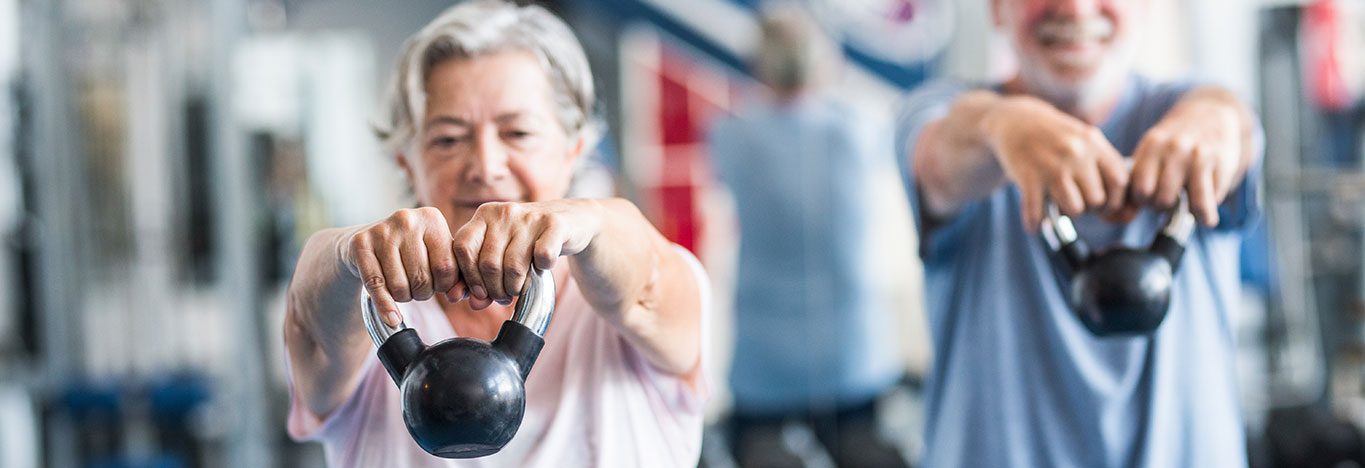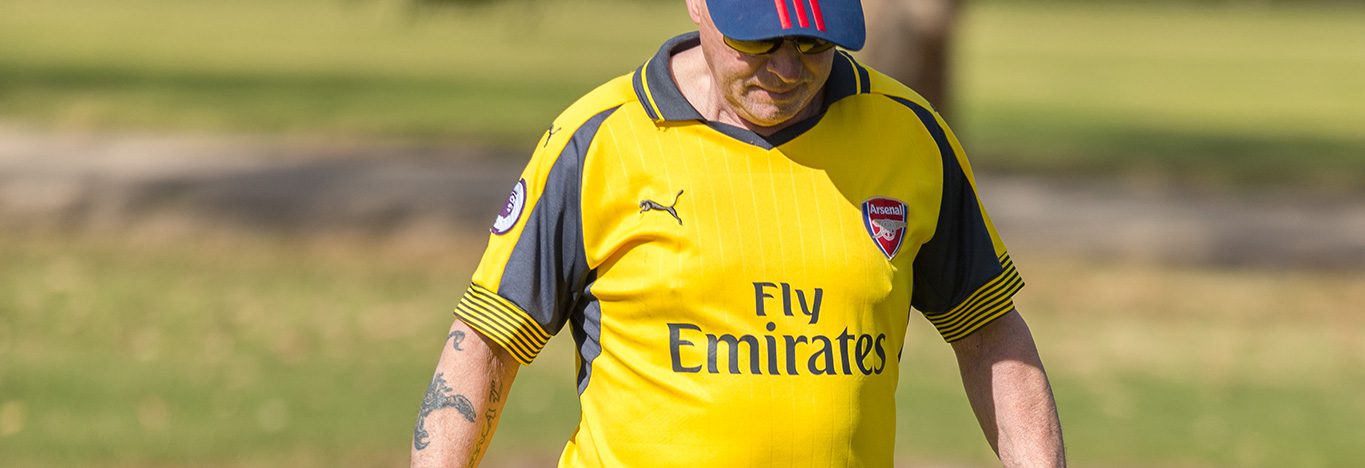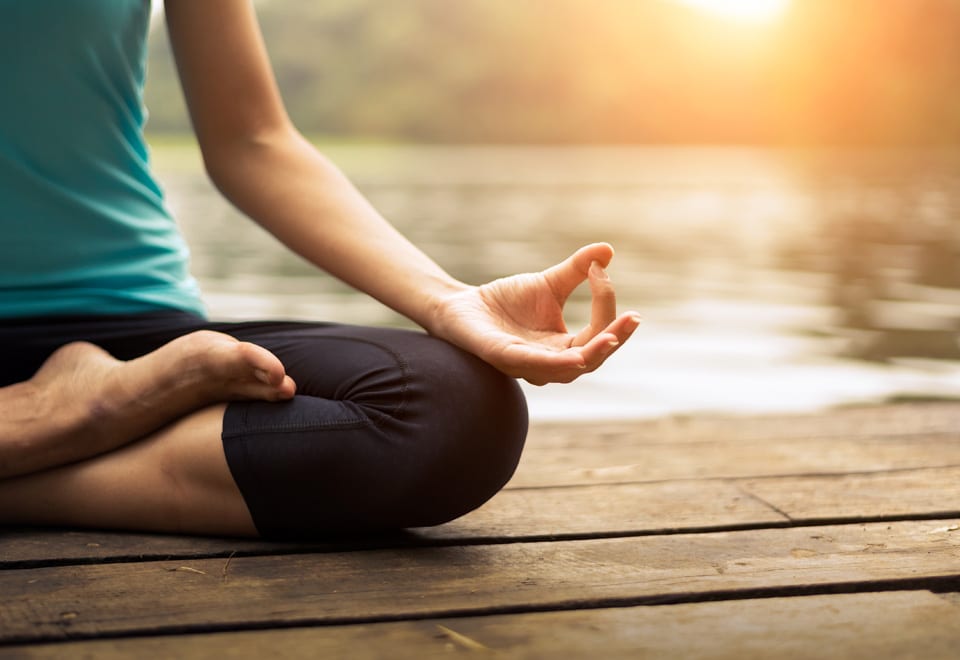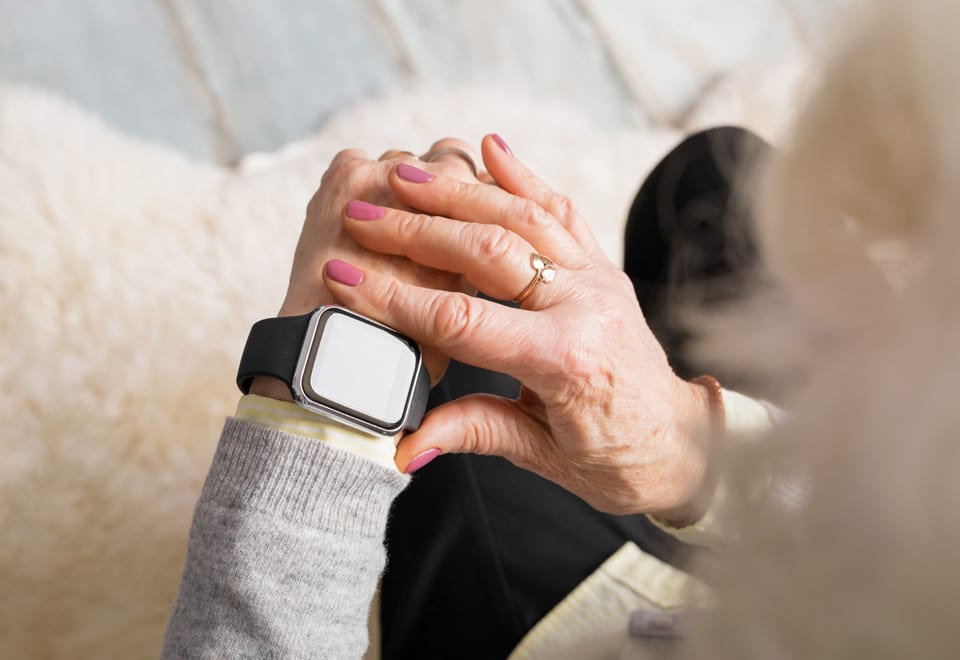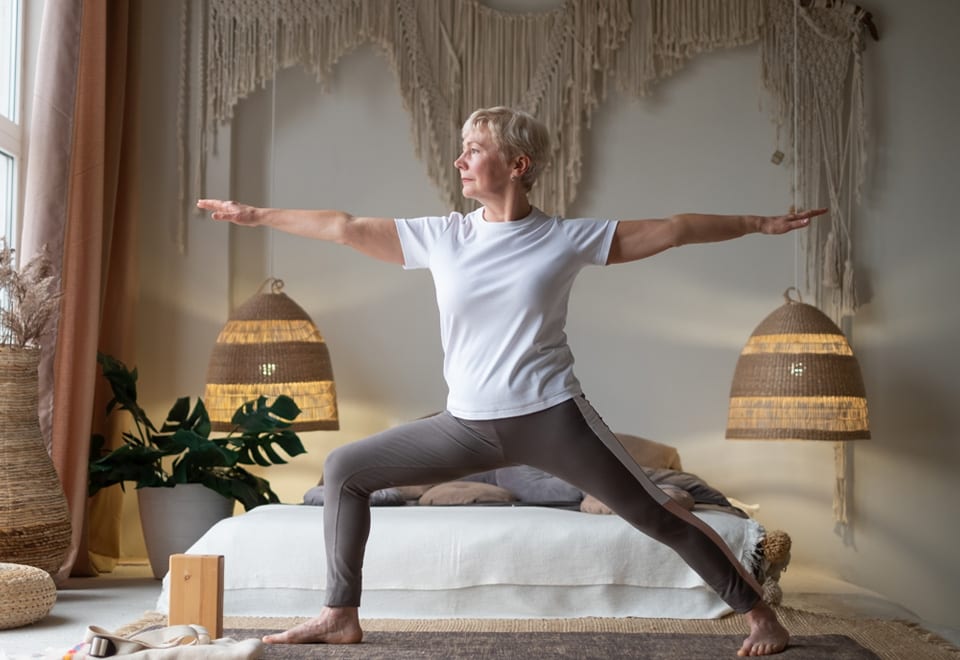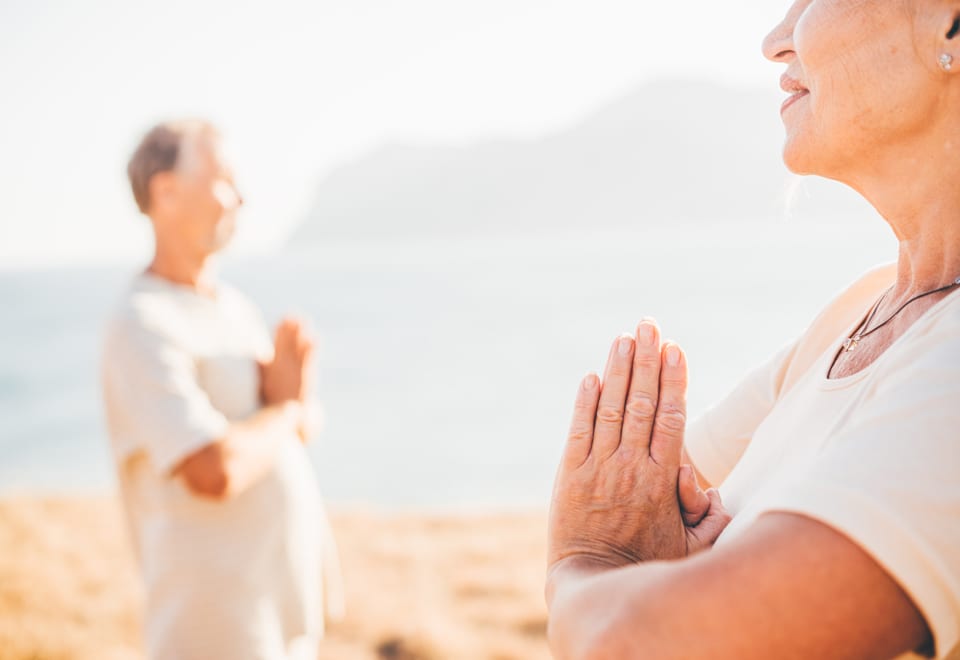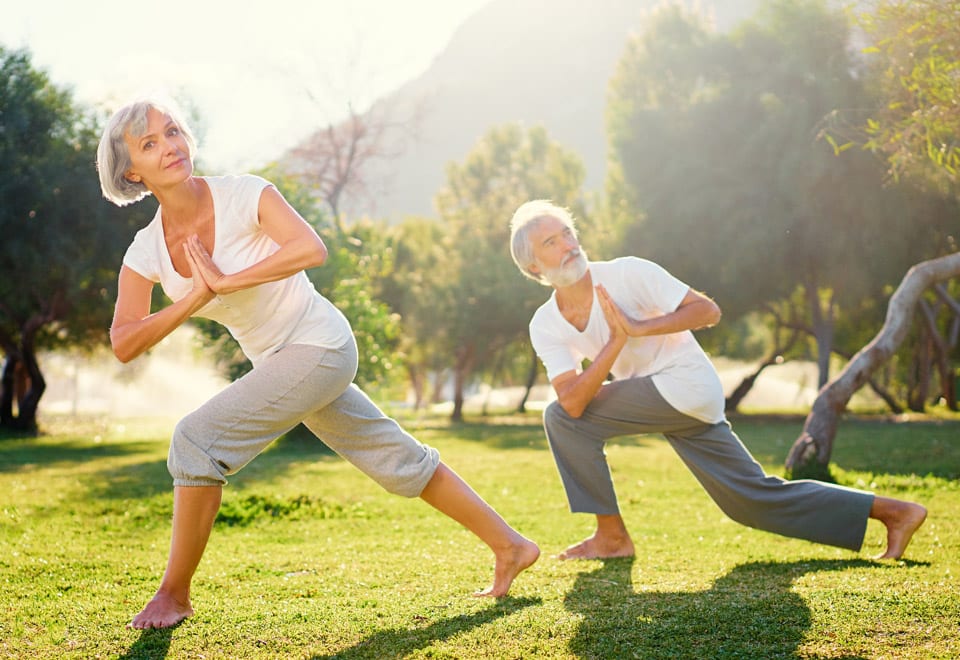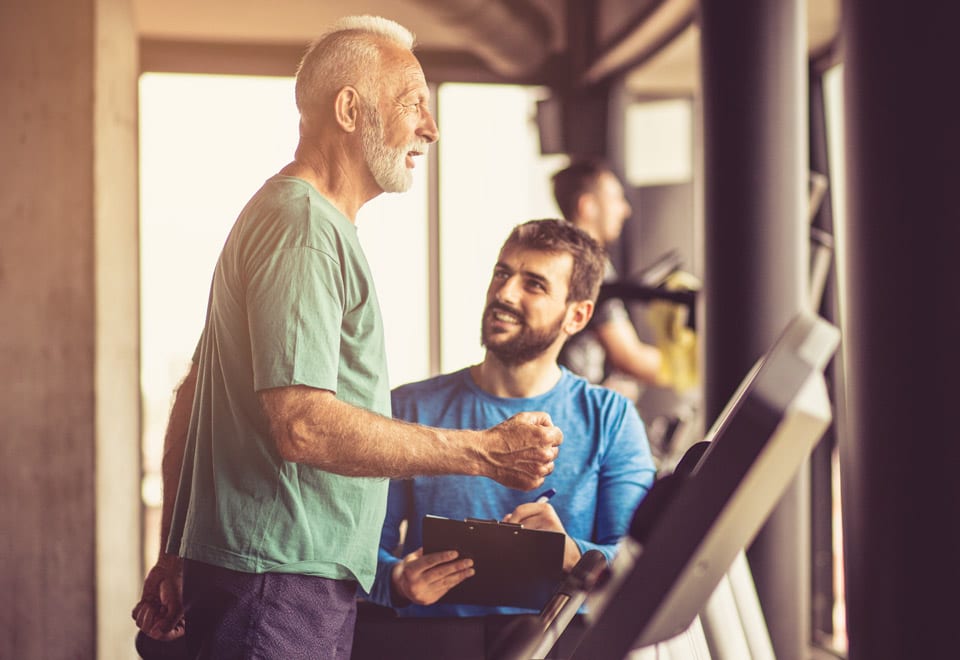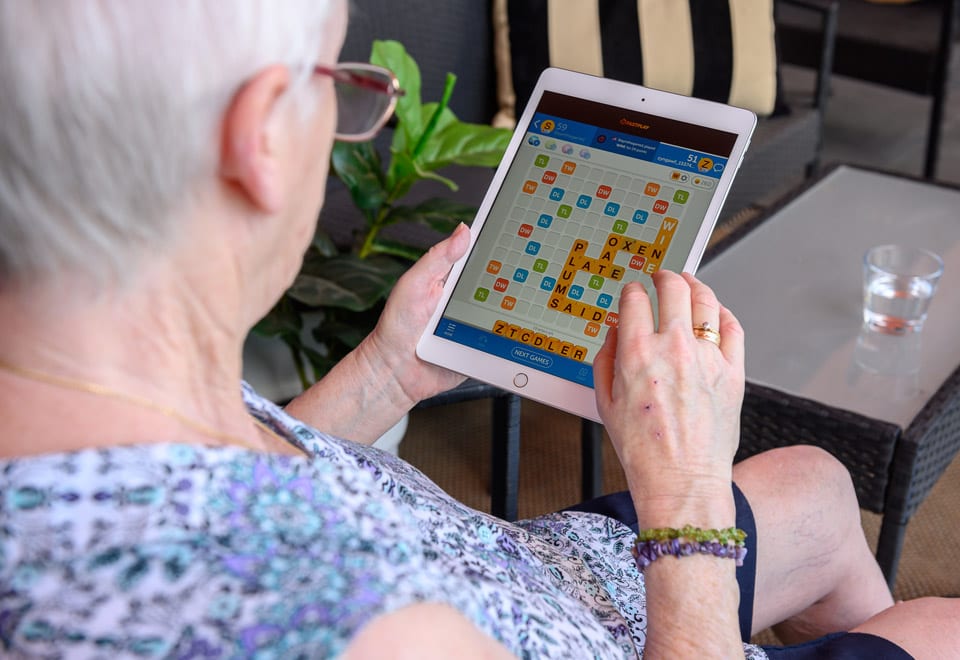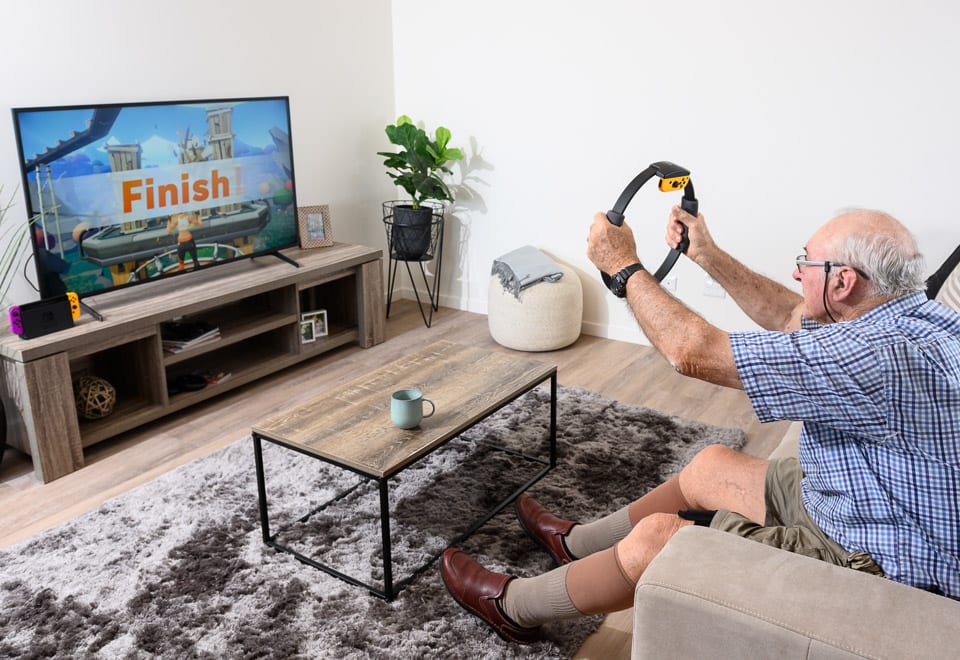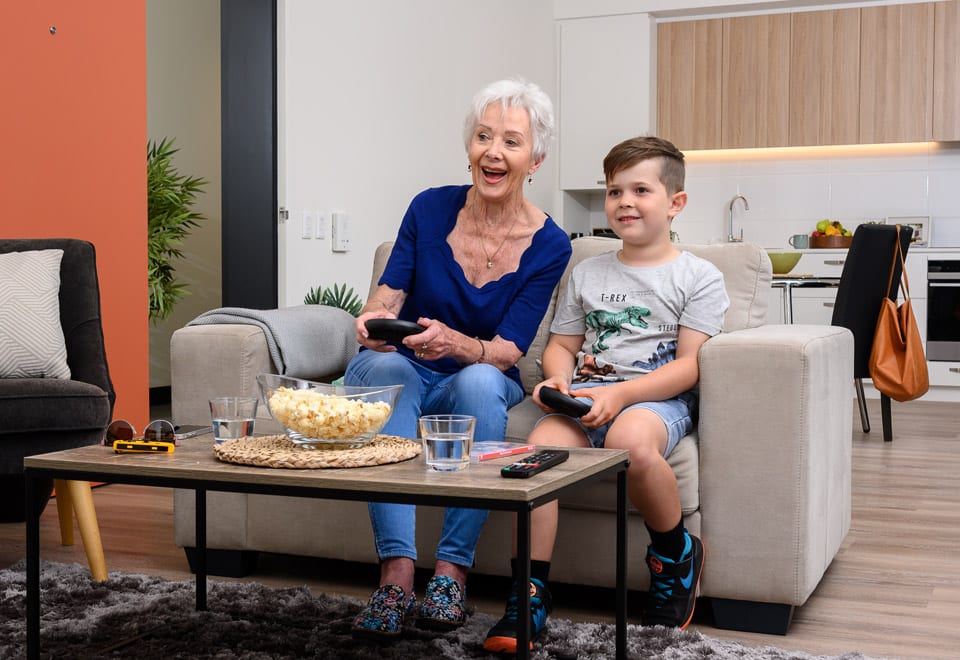Lesley Collett has always appreciated and enjoyed creating art and since her diagnosis with Multiple Scleroris (MS), has been able to reconnect with her passion through her participation in ACH Group ceramics group.
It’s Tuesday just before 1pm and the ACH Group ceramics class. There’s general chatter about what everyone’s been up to, when we’re greeted by the ACH Group coordinator and the class teacher. The display of colourful pottery pieces from last sessions, all fired and finished, are an exhibition of creativity on their own.
One of the vases on display featuring lilies has been created by Lesley who finds inspiration mostly in nature – in her garden, looking out of the window – seeing trees and plants, observing textures and details.
We asked Lesley about her creative process and what is important to consider when living with a chronic condition such as Multiple Sclerosis (MS).
“I like working with clay because it gets your brain engaged, it gets your hands engaged, it’s tactile, you can just lose yourself in it and you don’t think about anything else that’s going on.”
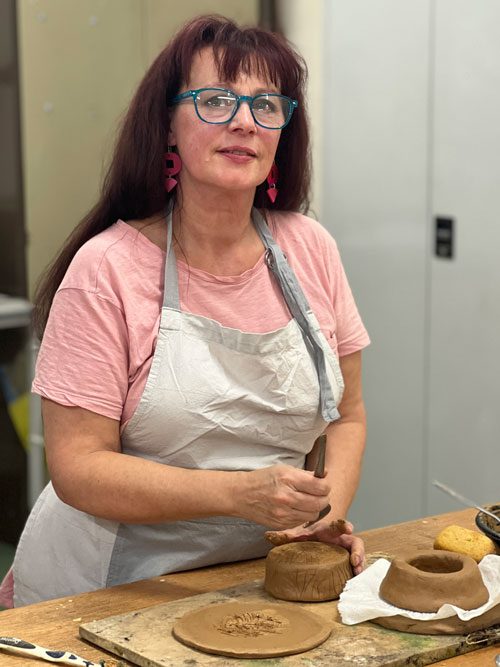
Lesley has thoroughly enjoyed the classes which have reignited her passion for art. Trying things she hasn’t done for many years and regaining interest in working with clay has been a highlight.
“Working with clay is just different compared to painting. As time goes on, your needs end up changing, your body changes, your eyesight changes, so you have to be little bit more adaptable of what you can actually physically achieve.”
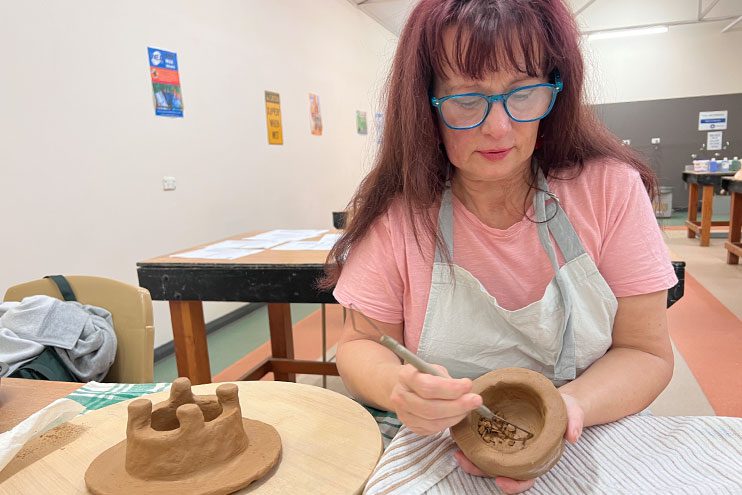
Lesley also reflected that joining the group is also an opportunity to get involved in a social situation and be with like-minded people who share the same interest.
“I think it’s something everybody can aspire to. It’s about finding what you like working with, and you get some encouragement and you’re with people you can get inspiration from.”
“I don’t have a plan, I observe what’s around me, and when I have the medium in front of me, then I work from what comes to my imagination and what the limitations are with the medium that we’re using – and it’s challenging that way and things just seem to happen. I just get totally absorbed in it.”
The element of surprise…
“After you’ve left it for a couple of weeks to dry out, it’s always a surprise because you don’t know if it’s going to make it through the firing. You don’t really know what colour you’re going to paint it until you’re there and at the end it’s a surprise, but I guess, there’s also some type of a vision for some of the pieces of work you’re going to do if you have a plan, but then you have to be aware that it may not always go as planned because of the limitation of what you’re working with and the time you’ve got.”
When you live with a chronic condition…
Lesley was diagnosed with Multiple Sclerosis in 1984. Looking back Lesley reflected that she had been having issues probably good ten years leading to the diagnosis, not realising what it actually was. Some of the symptoms included vision problems, a lot of fatigue issues that went on for many years and nobody knew why. The diagnosis came when Lesley lost sensations in her body from the chest down to her feet.
“MS is very unpredictable; you just don’t know what you get from one day to the next. As years go on, you learn how to manage it, learning to rest when you need to. Creating a support network is also important – reaching out to your family and community, finding allied health professionals that can support you.”
“MS affects my walking and there are things I can’t physically do, but I can use my hands and my vision, permitting that I don’t have an episode when I am feeling tired and I can’t see too well. It doesn’t preclude me from doing what I love and I am still enjoying my life.”
Lesley uses other ACH Group services, such as exercise physiology, and has regular sessions with a physiotherapist, which she finds extremely helpful and important.
“I exercise, mainly stretches, every day – to keep mobile as much as possible.”
In the past, Lesley also enjoyed joining ACH Group’s art groups and creating metal work.
When asked what she wishes people knew about MS, Lesley shared…
“Try not to be judgemental. If you see someone having issues, try not to label or say – that’s what is wrong with the person. Someone with MS might look perfectly normal and people expect them to be able to do certain things, but that’s not always the case, especially when fatigue and pain set in.”
Lesley hopes that raising awareness about MS will help the public understand that it’s a situation when it’s not always obvious.
What is multiple sclerosis
Multiple sclerosis is a chronic, neurodegenerative condition that affects the Central Nervous System (CNS). The body’s own immune system appears to attack the protective sheath of fatty protein, called myelin, which surrounds the nerves in the brain, spinal cord and the optic nerve.
Source: https://www.ms.asn.au/

